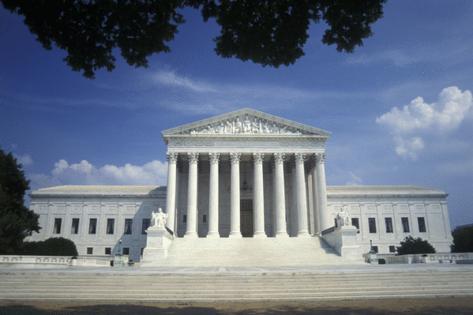Supreme Court upholds federal regulation of 'ghost guns'
Published in News & Features
WASHINGTON — The Supreme Court upheld a rule that restricts access to so-called “ghost guns” in a ruling Wednesday, holding that a federal gun control law could cover weapons parts kits that can be easily assembled into working firearms.
The 7-2 decision revives a 2022 regulation from the Bureau of Alcohol, Tobacco, Firearms and Explosives that targeted the sale of parts kits that can be quickly assembled into functioning firearms, some as quickly as 30 minutes.
The rule clarified that those kits qualify as “firearms” that are required to be sold with serial numbers and background checks the same as commercially produced guns.
The justices reversed a decision from the U.S. Court of Appeals for the 5th Circuit which would have invalidated the regulation for stepping beyond the bounds of the Gun Control Act of 1968.
Justice Neil M. Gorsuch, writing for the majority, said Congress meant the law to cover items that could readily be converted to working firearms, such as a starter gun.
“If Congress had wanted to regulate only operable firearms, it could have simply addressed ‘weapons’ that can ‘expel a projectile by the action of an explosive.’ But Congress didn’t stop there,” Gorsuch wrote. “Instead, Congress explained that a ‘weapon’ also qualifies for regulation if it is either ‘designed’ to accomplish that function or ‘capable of being ‘readily … converted’ to do so.”
Gorsuch compared the starter gun example in the law with some of the commercially available kits covered by the rule and wrote that an “ordinary person, using ordinary tools, can finish the frame in minutes.”
“The GCA embraces, and thus permits ATF to regulate, some weapon parts kits and unfinished frames or receivers, including those we have discussed,” Gorsuch wrote.
Law enforcement agencies have reported a dramatic increase in untraceable “ghost guns” used in crime, from 1,600 in 2017 to more than 19,000 in 2021, the opinion states.
The challengers — two individuals, one producer, one retailer and the Firearms Policy Coalition — argued that the 1968 law doesn’t give ATF the power to redefine a firearm to include their hobbyist kits.
Justices Clarence Thomas and Samuel A. Alito Jr. filed separate dissents in the case, arguing against the “overreach” that the court’s majority had blessed.
“Congress could have authorized ATF to regulate any part of a firearm or any object readily convertible into one. But, it did not. I would adhere to the words Congress enacted,” Thomas wrote.
Alito wrote in his dissent that he did not agree with the test the majority used to decide the case, and would have sought additional briefing or sent it back to a lower court to explore that further.
©2025 CQ-Roll Call, Inc., All Rights Reserved. Visit cqrollcall.com. Distributed by Tribune Content Agency, LLC.







Comments